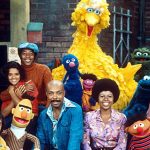Introduction
TV shows used to be about killing time after work—but now, they’ve become cultural phenomena, emotional lifelines, and even social glue. Whether you’re bingeing a thriller on Netflix, crying through a K-drama, or debating the latest HBO hit with friends, TV shows are no longer just stories—they’re shared experiences.
As streaming platforms explode and storytelling evolves, let’s explore why TV shows are more than just passive entertainment—and how they’re shaping the way we think, feel, and connect.
The Golden Age of Storytelling
We’re living in what many call the “Golden Age of TV.” With cinematic production, diverse voices, and character-driven plots, series today rival films in emotional depth and artistic quality.
Recent global hits like:
-
The Bear (for its raw, chaotic realism)
-
Beef (for its bold exploration of rage and identity)
-
Bridgerton (for its lavish period drama with a modern twist)
-
The Glory (for its intense commentary on bullying and justice)
-
Fallout (for adapting gaming culture into prestige storytelling)
These shows don’t just entertain—they provoke conversation.
Representation and Emotional Connection
More than ever, viewers are drawn to characters they can relate to. From neurodivergent leads to LGBTQ+ narratives, shows are becoming mirrors for real-life struggles and triumphs.
When people see themselves onscreen, they feel less alone. That’s the power of good television—it validates feelings, opens up dialogue, and sometimes even inspires healing.
Binge Culture and Emotional Burnout
While binge-watching offers instant gratification, it also contributes to emotional fatigue. Shows today often dive deep into trauma, mental health, or societal issues—which can be powerful, but also draining.
That’s why many are embracing the “slow watching” movement—pacing episodes, reflecting between viewings, and treating shows as emotional journeys, not background noise.
The Rise of Fandom and Online Community
TV shows don’t just live on screen—they live in memes, TikTok edits, fan theories, and Reddit threads. Fandom culture gives viewers a space to:
-
Process plot twists
-
Share reactions in real-time
-
Celebrate representation
-
Create art, content, and connection
Watching TV has become a social act, even when you’re alone.
What TV Says About Us
Your favorite shows say a lot about who you are, what you value, and how you see the world. Are you drawn to comfort sitcoms, dark thrillers, or slow-burning romances?
TV is not just a reflection of culture—it’s a shaper of it. And in many ways, the shows we watch shape the people we become.
Conclusion
In a world that often feels chaotic, TV shows offer a powerful form of escape, expression, and empathy. So go ahead—watch that series. Cry over that character. Text your friend when the plot twist hits.
Because in the end, TV isn’t just something we watch. It’s something we feel.



